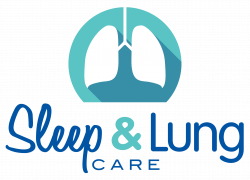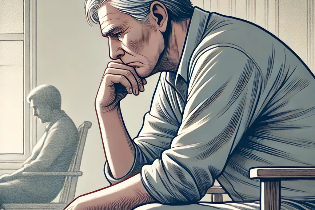The Effect of Depression on Sleep
Depression and sleep are deeply interconnected, with each condition influencing the other in complex ways. Poor sleep can worsen depression, and depression can significantly impact sleep patterns, leading to problems like insomnia, hypersomnia, and disrupted sleep cycles. In this blog, we’ll explore how depression affects sleep, the types of sleep disturbances commonly associated with depression, and why treating both is crucial for overall well-being.
How Depression Affects Sleep
- Insomnia
Insomnia is one of the most common sleep problems linked to depression. It involves difficulty falling asleep, staying asleep, or waking up too early and not being able to go back to sleep. Depression-related insomnia can lead to:
- Increased anxiety around sleep.
- Racing thoughts and overthinking at bedtime.
- Waking up frequently during the night.
Insomnia can make the symptoms of depression worse by causing daytime fatigue, irritability, and difficulty concentrating, creating a vicious cycle.
2. Hypersomnia
While some people with depression experience insomnia, others may suffer from hypersomnia, or excessive sleep. People with hypersomnia may sleep for long hours at night but still feel tired during the day. They may also take frequent naps, yet still not feel rested. This is a common feature of atypical depression, a subtype where individuals experience an increase in sleep and appetite.
3. Disrupted Sleep Cycles
Depression can interfere with the body’s natural sleep-wake cycle, known as the circadian rhythm. The circadian rhythm regulates the timing of sleep, alertness, and bodily functions, and when it’s disrupted by depression, individuals may experience irregular sleep patterns, trouble falling asleep at night, or difficulty waking up in the morning.
Changes in REM sleep (the stage of sleep associated with dreaming) are also common in depression. People with depression may enter REM sleep more quickly and experience longer periods of REM, which can lead to vivid or disturbing dreams and frequent awakenings.
4. Early Morning Awakening
Another hallmark of depression is waking up too early in the morning, often several hours before the alarm, with an inability to fall back asleep. This symptom is particularly associated with major depressive disorder (MDD) and is linked to a persistent feeling of sadness and hopelessness, which can intensify during these early waking hours.
The Bidirectional Relationship: Sleep and Depression
The relationship between depression and sleep is bidirectional, meaning that poor sleep can worsen depression, and depression can lead to sleep disturbances. Here’s how this cycle works:
- Poor Sleep Worsens Depression: Lack of sleep can reduce the brain’s ability to regulate mood, exacerbating feelings of sadness, anxiety, and irritability. It also impairs cognitive function, making it harder to cope with stress, which can deepen depression.
- Depression Disrupts Sleep: Depression alters the brain’s neurotransmitter levels, particularly serotonin and melatonin, which are crucial for regulating sleep. This chemical imbalance can make it difficult for people with depression to fall asleep or stay asleep.
Health Implications of Poor Sleep in Depression
Chronic sleep disturbances, whether from insomnia or hypersomnia, can have serious health consequences, including:
- Physical Health Problems: Long-term sleep deprivation has been linked to an increased risk of heart disease, diabetes, high blood pressure, and weakened immune function.
- Cognitive Impairment: Poor sleep affects concentration, memory, and decision-making. For someone with depression, this can further reduce their ability to function at work, school, or in social settings.
- Worsening Mental Health: Untreated sleep problems can intensify depression and increase the risk of anxiety disorders. In severe cases, insomnia and depression together can lead to suicidal thoughts.
- Reduced Quality of Life: Sleep disturbances caused by depression can lead to social isolation, difficulty maintaining relationships, and a reduced overall quality of life.
Treatment Approaches for Depression and Sleep Issues
Addressing both depression and sleep disturbances simultaneously is crucial for effective treatment. Here are some common approaches:
- Cognitive Behavioral Therapy for Insomnia (CBT-I)
- CBT-I is a highly effective, non-drug therapy specifically designed to treat insomnia. It helps individuals change the thought patterns and behaviors that contribute to poor sleep, breaking the cycle of insomnia and depression.
- Medications
- Antidepressants: Some antidepressants, such as selective serotonin reuptake inhibitors (SSRIs), can help regulate sleep by addressing the underlying depression. However, certain antidepressants can cause insomnia, so finding the right medication is important.
- Sleep Aids: In some cases, doctors may prescribe short-term sleep aids or recommend over-the-counter options to help regulate sleep. However, these should be used cautiously as they don’t address the root cause of the sleep problem.
- Improving Sleep Hygiene
- Adopting good sleep hygiene practices can improve sleep quality and help manage depression. Some strategies include:
- Maintaining a consistent sleep schedule, even on weekends.
- Creating a relaxing bedtime routine, such as reading or taking a warm bath.
- Limiting screen time before bed and avoiding stimulants like caffeine and nicotine.
- Keeping the sleep environment comfortable, dark, and cool.
- Adopting good sleep hygiene practices can improve sleep quality and help manage depression. Some strategies include:
- Exercise
- Regular physical activity can improve mood and promote better sleep. Exercise helps regulate the circadian rhythm, making it easier to fall asleep and stay asleep. Just be mindful to avoid exercising too close to bedtime, as it can be stimulating.
- Psychotherapy
- Cognitive Behavioral Therapy (CBT) is an effective form of psychotherapy for treating depression and sleep problems. It helps individuals challenge negative thought patterns and develop coping strategies to manage stress and improve sleep.
- Relaxation Techniques
- Techniques such as deep breathing, progressive muscle relaxation, and mindfulness meditation can help reduce stress and anxiety, making it easier to fall asleep and stay asleep.
Conclusion
Depression and sleep disturbances often go hand in hand, each making the other worse. Insomnia, hypersomnia, and disrupted sleep cycles are common in people with depression, but addressing both the mood disorder and sleep issues is essential for recovery. If you or someone you know is struggling with depression and poor sleep, seeking professional help is the first step toward breaking this cycle and improving overall well-being.

